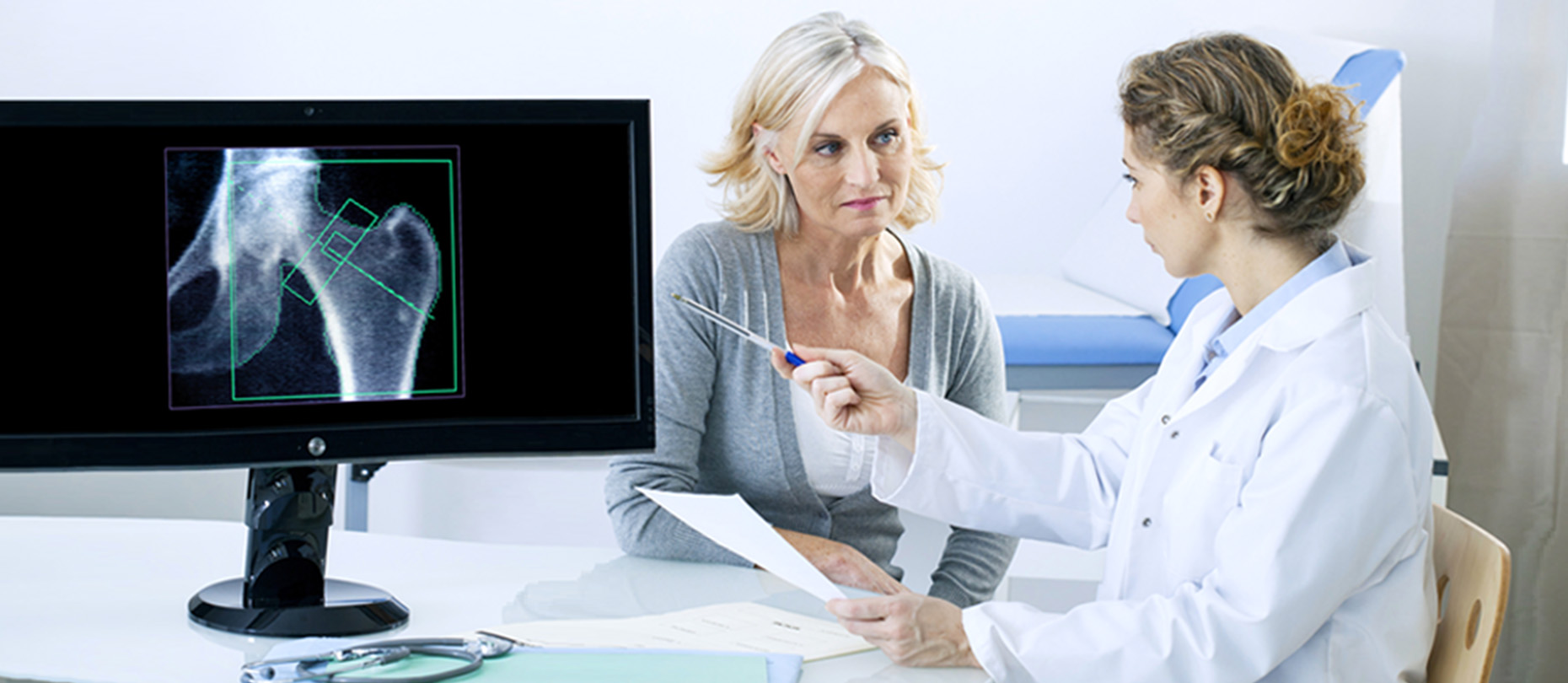HEALTHY LIVING
What Is Bone Density and Why Do You Lose It as You Age?
What Is Bone Density and Why Do You Lose It as You Age?
- Sub Heading
-
It's never too late to help support the health of your bones.
- Duration
-
OCT. 28, 2022 4 MINUTE READ - Description
-
Doctors most often test for density using a specialized X-ray device called a DEXA scan. When test results show a decreased density score, it can indicate osteopenia or osteoporosis. Borderline scores signal osteopenia, meaning you are at risk of developing osteoporosis, or weakened bone density.
Most women aged 65 and older should have a DEXA scan. Anyone at risk for osteoporosis, including men aged 70 and older as well as anyone who is losing height, should also talk to their doctor about getting a DEXA scan.
Why Do Bones Lose Density as You Age?
The human body is constantly remodeling, breaking down old bone (and bone minerals) and replacing it with new bone. Until around age 30, your body builds new bone faster than it degrades old bone.
Over time, the building slows. Around age 40, you begin to lose bone minerals faster than you can create new bone minerals. As a result, your bone density decreases and your bones tend to become more porous and brittle.
More than 1 in 10 American adults aged 50 and older have osteoporosis. It's the most common form of bone disease and can cause a hunched posture, lost height and fractures to the spine or hips, among other complications. Hip fractures are associated with long-term disabilities and may increase risk of death.
How Can You Support Bone Health as You Age?
While peak bone density naturally occurs around age 30 and begins declining around age 40, there are actions you can take to help support bone health at any age. By prioritizing nutrition, you can effectively help to slow bone loss and reduce your risk of osteoporosis and its side effects, such as broken bones and fractures:
- Meet Adequate Calcium Needs
Meeting your body's calcium needs is especially important as calcium is one of the main building blocks of bone. It's made available to your body through the foods, drinks and supplements you consume. Your exact calcium needs depend on your age, sex and other factors, but most adults need between 1,000 mg and 1,300 mg of calcium per day. That's how much you'll find in about four glasses of milk.
Don't worry — while dairy is a rich source of calcium, you don't have to drink that much milk. Other foods are high in calcium too, such as tofu, spinach, salmon and almonds. If you have trouble getting enough calcium through food alone, nutritional drinks such as Ensure® Max Protein can help. One serving (11 oz) contains 50% of the Daily Value for calcium.
- Prioritize Vitamin D
Without vitamin D, your calcium intake might not do as much as you hope. Vitamin D acts like the key to calcium's lock. It allows your body to effectively absorb and use calcium to build strong bones.
The recommended daily intake of vitamin D is 15 mcg to 20 mcg, but many adults — especially those living in northern locations and those who don't get a lot of year-round sunlight — don't get enough. You can increase your intake through foods such as fortified milk and tuna as well as exposure to sunlight. Nutritional supplements also offer an easy way to significantly increase your vitamin D levels. Look for supplements with D3 on their labels.
- Focus on Nutrient-Rich Foods
While sodium is an essential nutrient, too much of it may increase calcium excretion through the kidneys. About 90% of Americans consume too much sodium. The biggest contributor isn't the saltshaker — it's shelf-stable foods with added sodium that many manufacturers rely on to help boost flavor and preserve foods.
Bone-strengthening vitamins and minerals aside, nutrient-rich foods such as yogurt, canned tuna and eggs may be helpful for your bone health because they have naturally low levels of sodium.
To lower your salt intake, choose low-sodium or no-sodium foods when available and add your own seasoning. Quickly rinsing canned foods like beans and corn before you prepare them can also remove a good amount of sodium from your plate.
- Pair Good Nutrition With Movement
The best part of focusing on nutrient-rich foods is that it provides your body with the fuel it needs to stay active. Regular physical activity, especially standing weight-bearing exercise — walking, running, playing tennis and resistance training — all strengthen your bones.
While proper exercise and nutrition can help to strengthen bones at any age, they may not be enough to stop bone loss caused by medical conditions (e.g., menopause) or lifestyle choices (e.g., tobacco use or excessive alcohol consumption). It is important to talk to your doctor about your bone health.
6 Ways to Maximize Nutrition
- Main Image
-

- Heading
- Description
-
Nutrition and health go together. After all, it's food that fuels every cell in your body and supports your muscles for strength. Optimizing your diet to maximize your health doesn’t have to be difficult. By focusing on a variety of foods and nutrients, you can help support your strength, and energy.
Here are six strategies to improve your nutrition decisions.
- Reference Page Path
- /content/an/newsroom/us/en/lifestyle-nutrition/aging-well/6-ways-to-maximize-nutrition.html
8 Ways Muscle Loss Impacts Health | Abbott Nutrition
- Description
-
Are you tired by the time you reach the top of the stairs? Have you been ill or hospitalized and lost weight recently? Are you walking slower than normal? These can all be signs of muscle loss, and it's more common than you might think.
Advanced muscle loss, or sarcopenia, affects one in three adults ages 50 and older, according to Age and Ageing review.
"You have more than 600 muscles in your body, which account for up to 40 percent of your body weight — that's almost half of you," explains Suzette Pereira, Ph.D., a researcher specializing in muscle health at Abbott. "While aging is natural, losing too much muscle is not and can directly impact your mobility, strength and energy levels, immune system, and even organ function."
Because muscles are intrinsically linked to so many systems, research published in The Journal of Post-Acute and Long-Term Care Medicine argues that a person's muscle mass is a far better predictor of health than BMI, orbody mass index.
What are the risks of losing too much muscle? Read on to learn about the impacts and then check out “5 Ways to Age-Proof Your Muscles” for simple diet and exercise strategies to stay active and strong – so you can do the things you love.
- Reference Page Path
- /content/an/newsroom/us/en/lifestyle-nutrition/aging-well/losing-muscle-8-ways-it-may-impact-your-health.html


